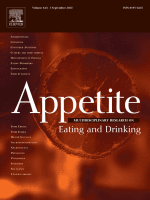From Appetite
Reducing meat consumption may improve human health, curb environmental damage, and limit the large-scale suffering of animals raised in factory farms. Most attention to reducing consumption has focused on restructuring environments where foods are chosen or on making health or environmental appeals. However, psychological theory suggests that interventions appealing to animal welfare concerns might operate on distinct, potent pathways. We conducted a systematic review and meta-analysis evaluating the effectiveness of these interventions. We searched eight academic databases and extensively searched grey literature. We meta-analyzed 100 studies assessing interventions designed to reduce meat consumption or purchase by mentioning or portraying farm animals, that measured behavioral or self-reported outcomes related to meat consumption, purchase, or related intentions, and that had a control condition.
In conclusion, animal welfare interventions preliminarily appear effective in these typically short-term studies of primarily self-reported outcomes. Future research should use direct behavioral outcomes that minimize the potential for social desirability bias and are measured over long-term follow-up.

